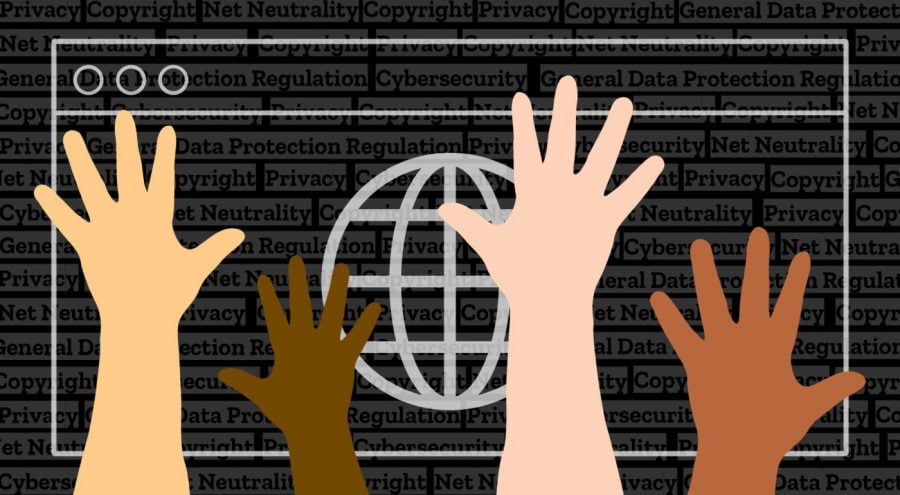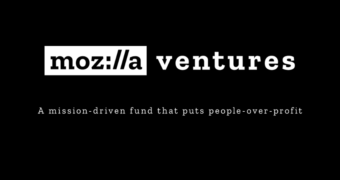As 2018 approaches the halfway point, here is our list of online issues we feel are most important and have the broadest implications for net neutrality, privacy, copyright and cybersecurity.
These issues are being litigated, voted on, and argued about across the globe. They have a very real impact on your daily life and how you access and benefit from an open, accessible web.
1. States Are Stepping Up as FCC Backpedals On Net Neutrality
In the wake of the FCC’s rollback of net neutrality regulations, 29 states are now proposing their own net neutrality regulations to protect user access to the web in spite of limitations imposed by internet service providers. Because the FCC repeal included provisions preventing states from passing their own legislation, we’ll likely see legal battles between the FCC and individual states over the future of the open web.
2. States Update Data Security Requirements for Businesses
U.S. states such as Massachusetts and California are working on consumer protection laws with legislation that resembles the European Union’s General Data Protection Regulation (GDPR). Among other features, the proposed legislation codifies user rights to know exactly what data companies collect, where they collect it, why they do, and who else has access to it. It grants users the right to remove personal information from company databases and prohibits companies from selling their data, which is all a step in the right direction. What’s still unclear is how effective this legislation will be if it passes, and whether lawmakers can get industry to commit to the deeper principles of privacy that underlie the regulations.
3. Cell Phone Location Protection Upheld in Carpenter v. United States
The U.S. Supreme Court ruled that the government must get a warrant to obtain records of where someone’s cell phone has been. This means records of your phone’s location cannot be used to implicate you without a search warrant. The decision sets a precedent about user rights to privacy, even when third parties handle their data. Read more: “A rare bright spot in the uphill battle for digital privacy.”
4. Fair Use Limited by Oracle v. Google Decision
The U.S. Court of Appeals for the Federal Circuit dealt a blow to technological innovation in Oracle v. Google by narrowing the scope of what kinds of software code can be used under a “fair use” copyright. The ruling is not only antithetical to the way software is developed, it makes innovation much more difficult by making it harder for developers to learn from each other or build upon existing code.
5. EU Copyright Proposal Threatens the Future of the Meme, Internet
Although not yet approved, a new proposed copyright law in Europe would allow press publishers to demand a license fee for use of snippets of online text. This means that anyone linking to news sources on a personal blog or website could be charged a fee, dangerously undermining access to knowledge and information sharing. Possibly even more damaging, the proposal imposes copyright monitoring obligations on platforms, where any platform that allows content to be posted would need to use automatic content filters to prevent copyrighted material from being posted without a license—bad for the internet in general, and a death knell for meme culture.
6. Vulnerabilities Equities Process Goes Into Effect
The U.S. White House approved an updated process for disclosing software vulnerabilities to a broad range of stakeholders, a policy change which should lead to better cooperation between the government and private companies and better protect users from data breaches and hacks. The EU currently does not have such a procedure, but Mozilla is one of many organizations advocating for a vulnerabilities process that would encourage similar cooperation between the European government and the private sector.
7. Is Local the Solution to Data Security?
A number of countries are calling for data to be stored locally as a way to keep it more secure. It’s sort of like the laws that try to prevent corporations from offshore banking. But this approach could harm users, if the countries storing the data don’t also have strong data protection laws and enforcement. For example, in India local storage of biometric identity data could soon be a legal requirement. However, databases in India have already been breached multiple times. Strong data protection laws are critical for data security. Without laws in place that provide a deterrent to hacking the information, local storage versus cloud storage could be a somewhat circular debate.
Get More Policy Discussions “In Real Life”
Those are the big issues we’ve been following—and in some cases fighting—to help make the Web a better place for everyone: rich or poor, big or small, global or local.
And for a more in-depth approach to online issues like these, be sure to check out the third season of Mozilla’s IRL podcast. In Season 3’s first episode, hear how one man’s HIV status was exposed without permission, how a massive data-mining company is using our information to predict how we’ll behave, and why on earth our email inboxes are filling up with privacy policies.
Episode 1 of IRL Season 3 launches July 2nd.







